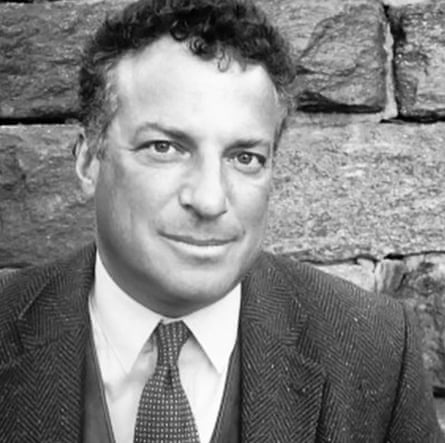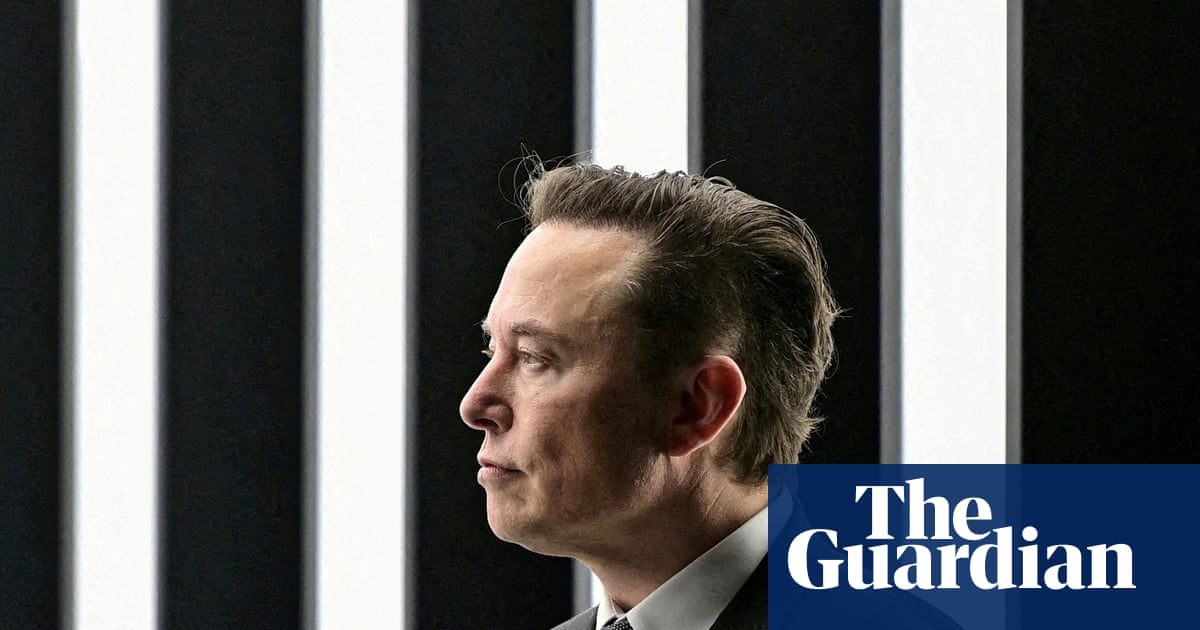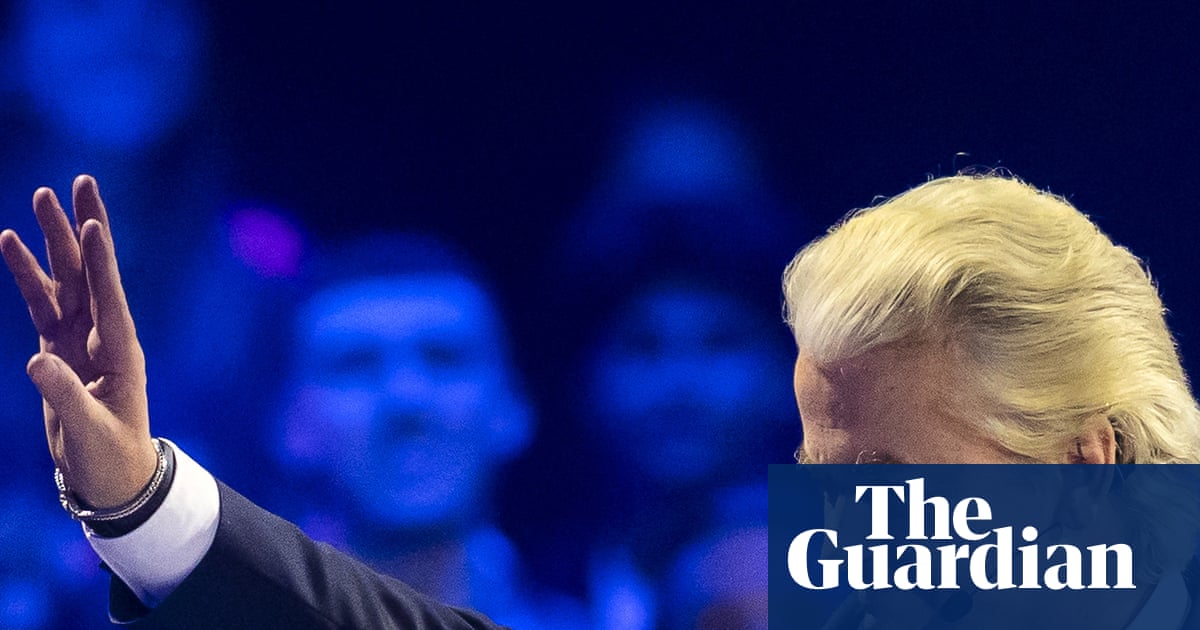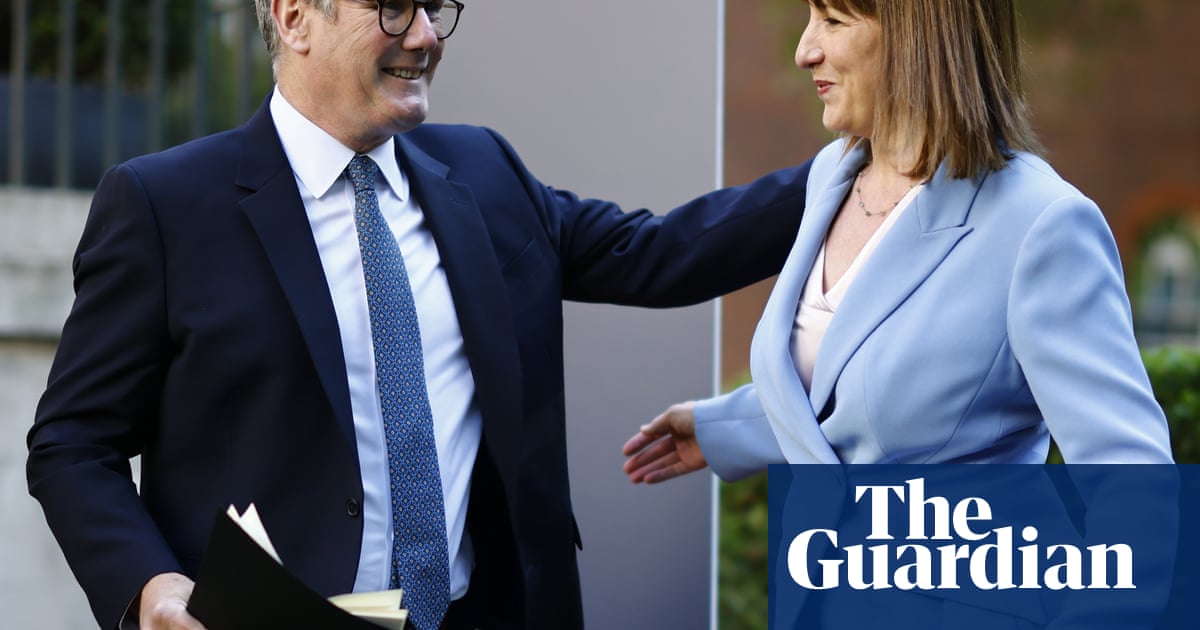It may seem perverse to pity the Central Intelligence Agency. The powerful spy organization’s history is rich with failures and abuses – from the Cuban missile crisis to the post-9/11 torture program to its role in the overthrow of a long string of democratically elected leaders. But among the many consequences of Donald Trump’s open hostility toward America’s intelligence community is that no less a CIA critic than Tim Weiner now sounds like a defender.
To understand why, Weiner – author of the unsparing history of the agency, the 2007 bestseller Legacy of Ashes – suggested a thought experiment in a recent interview: imagine spending years as an intelligence officer, working diligently to subvert the Kremlin, only to watch the US stand with Russia, Iran and North Korea, as it did in February when it voted against a UN resolution condemning the invasion of Ukraine. In that moment, Weiner said: “You come to the realization, if you hadn’t already: ‘My God, the president of the United States has gone over to the other side. He has joined the authoritarian axis.’”
Weiner was sitting on the patio of his Brooklyn apartment, a sunny book-lined penthouse purchased with some of the proceeds of Legacy, the 700-page tome that, to his evident surprise, became one of the unlikeliest beach reads in recent memory. A former national security reporter for the New York Times, the author has spent nearly four decades laboring to unlock the agency’s secrets. His latest book, The Mission, which is out on Tuesday, is something of a sequel, picking up where Legacy left off to examine the evolution of the CIA since 9/11. Based on interviews with numerous CIA officials (including, improbably, current deputy director for operations Tom Sylvester), it’s the story of an organization purpose-built for a bygone era, still adrift more than a decade after the fall of the Berlin Wall, failing to spot the emergence of a formidable new adversary in Al-Qaida, and then playing a panicked and catastrophic game of catchup. The results included misbegotten intel about WMDs, the depraved and ineffective torture program, the failure to predict the Arab spring and other screwups.
But it’s the book’s final chapters, which find the organization blindsided by Russia’s influence operation on behalf of Trump’s 2016 campaign for the presidency, that readers may find most striking. Weeks before the election, Russia’s intelligence services, with an assist from WikiLeaks, began releasing a trove of hacked Democratic National Committee emails, dealing a devastating blow to Hillary Clinton’s campaign. It was, as Weiner puts it in The Mission, “an audacious act of political warfare [that] helped elect a demagogue president of the United States”. Weiner dismisses the theory that Trump is a Russian asset, but says it’s beside the point. “He’s Russia’s ally.” (That said, as Putin is discovering this week, the president’s loyalties are somewhat fluid.)
The CIA soon embarked on a delicate balancing act: working to neutralize the very force that worked to put their new commander-in-chief in office. Tom Rakusan, then newly installed as the chief of the clandestine service, called a meeting of senior officials. “He told them, in so many word: ‘The Russians stole our fucking election. How do we make sure this never happens again?’” Weiner recounted. Agents who had spent the last 15 years working on counter-terrorism would turn their attention back to the Russian threat. “The call to arms proceeded, I’m quite confident, without his knowledge,” Weiner added, referring to Trump.
Following two impeachments (and two acquittals), an insurrection and another election, Trump is back in the White House and bent on revenge. “Donald Trump hates the CIA,” Weiner said, noting that Trump considers the agency the beating heart of a “deep state” that he believes is working to undermine him. Consequently, the president has appointed “a coterie of dangerously incompetent and servile acolytes to the highest positions of national security”. Weiner describes the new CIA director, John Ratcliffe – a former personal injury attorney, Maga congressman and, briefly, director of national intelligence in Trump’s first term – as “a spineless person who will do whatever Trump tells him to do”.
Shortly after we spoke, Ratcliffe ordered a review that criticized the CIA’s original report on Russia’s pro-Trump influence operation, and the former CIA director John Brennan became the subject of a criminal investigation by the FBI.
The new director has also moved aggressively to implement a purge at the CIA’s Langley, Virginia, headquarters. “He’s attempting to rid the CIA of its most experienced officers,” Weiner said, “and to impose ideological purity tests. Ratcliffe said explicitly from the get-go that he aimed to align the leadership of the CIA with the president’s view of the world. Since the president’s view of the world is largely based on falsehoods and imaginary enemies, I think this will be an extremely difficult task.”

Meanwhile, Ratcliffe dismissed hundreds of recently hired staffers and then sent their names to Elon Musk in an unclassified email that Weiner said was probably intercepted by the Russians and Chinese, who he posits are now presumably working to recruit them as spies. “All they need to do is to find people who are either deeply resentful or who might have a financial or a drug problem to be exploited.”
Trump’s anti-diversity crusade will also have national security repercussions, Weiner predicted. In February, a judge allowed the administration to reassign the team responsible for diversifying the agency. “For decades, the CIA has tried to hire people who don’t look like they just got off the bus from Kansas on the very sound principle that if you want to spy in a nation like Somalia or Pakistan or China, it might be wise to have a workforce that is not made up exclusively of white guys, and who speak languages other than English,” Weiner said. “Diversity was one of the CIA’s few superpowers, and the mindless abolition of the effort to diversify the CIA’s officers and analysts was one of the most stupid self-inflicted wounds that Radcliffe could have delivered.”
Meanwhile, as Politico recently reported, allies may now be reluctant to share sensitive information with the US, no doubt mindful of the 2017 incident in which the president gleefully handed the Russian foreign minister a highly classified Israeli tip. “The CIA, to an extent that people rarely understand or appreciate, is really dependent on allied intelligence services,” Weiner explained. The appointment of Tulsi Gabbard as director of national intelligence, who oversees the CIA and 17 other intelligence agencies, only compounds the risk, Weiner said. Gabbard has never worked in the intelligence community and has been accused of parroting Russian propaganda. “What ally would share secrets with a dangerously deluded person like that?”
Weiner recognizes it might come as a surprise to some to hear him extolling the virtues of the agency he has previously skewered. “I’m not known as a great defender of the CIA but neither am I a defender of willful ignorance,” he said of the Trump administration’s seeming unconcern about the threats posed by foreign adversaries. “I do think that the mission of intelligence to divine the secrets of the enemies in the United States is worthwhile. There’s unfortunately no mechanism for defining the intentions of the president, and therein lies a danger.
“What keeps me up at night,” he continued, “is the fact that Trump has put the instruments of American national security in the hands of crackpots and fools, and that their incompetence and ideological blinkers will blind them to a coming attack. If the United States gets hit again under Trump, he will destroy what is left of our democracy.” When I asked Weiner how he thought the CIA might respond to Trump’s provocations, he chuckled. “Is the CIA going to join the resistance? No,” he said flatly.
That said, the spot where we sat was just blocks from the site where, weeks before, demonstrators had assembled for one of several thousand “No Kings” protests – thought to be the largest mass demonstration in US history. “We’ve learned, to our sorrow, that Robert Mueller is not going to save us,” Weiner said. “Barack Obama is not going to save us. The supreme court is not going to save us. But the other day, several million Americans marched in the street to protest the Mad King. And just as only we can defeat ourselves, I think only we can save ourselves.”
-
The Mission by Tim Weiner is available now on Mariner Books

 3 months ago
43
3 months ago
43

















































